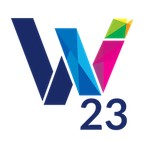Abstract
Informative chatbots embedded in an organization-specific context can provide a reliable, interactive, and engaging source of information for users. However, traditional chatbot techniques have limitations in processing and understanding user input and generating human-like responses. On the other hand, the latest implementations of large language models show promising results in these domains but have limitations in providing accurate and up-to-date facts from domain-specific knowledge bases. With the advent of popular chatbots like ChatGPT, they are increasingly becoming part of organizations' digital infrastructure. In this research-in-progress paper, we argue that the strengths and weaknesses of traditional techniques and large language models are complementary. Therefore, we propose a hybrid chatbot architecture that utilizes inter-agent communication to compensate for disadvantages while enhancing the chatbot's abilities, as perceived by the user. This approach will form the basis for development and evaluation using Design Science Research (DSR) as part of our research.
Paper Number
133
Recommended Citation
Arz von Straussenburg, Arnold F. and Wolters, Anna, "Towards Hybrid Architectures: Integrating Large Language Models in Informative Chatbots" (2023). Wirtschaftsinformatik 2023 Proceedings. 9.
https://aisel.aisnet.org/wi2023/9



Comments
Track 12: Digital Infrastructure, Internet of Things & CPS